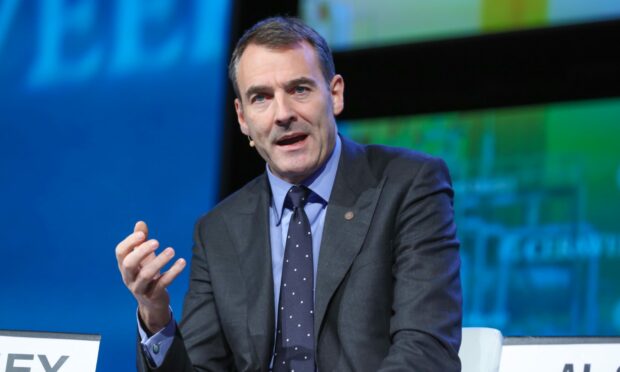The sudden exit of BP chief executive Bernard Looney amid investigations over his “personal relationships” with colleagues has sparked volatitity in the energy giant’s share price.
BP’s stock fell as much as 1.8% after the London market opened this morning.
By 8.40am it was up by around 0.5%, compared with Tuesday’s market close.
There was a steady fall until about 9.50am, followed by another brief rise as investors took in the shocking news about Mr Looney’s departure.
The shares continued to fluctuate throughout the day but finished up deeper in negative territory. By the end of trading a unit of the stock was worth 508.2p – down nearly 3% on Tuesday’s close.
Why are the shares in the spotlight?
BP revealed last night that Mr Looney, 53, had quit, with immediate effect, after failing to be “fully transparent” in his disclosures about past relationships with colleagues.
Chief financial officer Murray Auchincloss has taken over the top job on an interim basis.
John Moore, senior investment manager in Scotland for financial services firm RBC Brewin Dolphin, said: “BP is going through a business transformation programme that recognises the significant changes in the energy market. While the departure of the CEO midway through this process isn’t ideal, there is depth in the management team to cope until a suitable replacement can be found.”
Mr Looney joined BP as a drilling engineer in 1991 following an honorary doctorate and bachelor’s degree in electrical engineering from University College Dublin. He also boasts a master’s degree in management from Stanford Graduate School of Business.
He has worked in the North Sea, Vietnam and Gulf of Mexico.
The former BP North Sea boss worked directly for former CEO Tony Hayward and his predecessor, Lord Browne, before taking on responsibility for overhauling drilling at the copmpany following the Deepwater Horizon catastrophe in the US.
He was head of oil and gas production before he took over as CEO from Bob Dudley at the start of 2020.
Mr Looney had terrible news to deliver after taking over as CEO at BP
Just months after taking the job, he told staff BP planned to cut 10,000 jobs from its global workforce, after the business took a major hit from the coronavirus pandemic.
More recently, he pledged BP would aim to get to net-zero by 2050, the same target that was adopted by the UK Government.
His announcement the business would increase the amount it invests in low-carbon projects tenfold by 2030 to around £4 billion a year gained praise from environmental group Greenpeace.
While the departure of the CEO midway through this process isn’t ideal, there is depth in the management team to cope until a suitable replacement can be found.”
John Moore, senior investment manager, RBC Brewin Dolphin
Mr Looney also helped to navigate the firm through rocky times, such as the coronavirus pandemic and Russia’s conflict with Ukraine, both of which impacted oil and gas prices.
Earlier this year, it was revealed he had earned more than 170 times more than BP’s average employee in 2022. His pay doubled to around £10m, compared with around £4.5m the year before, after the company benefited from Russia’s invasion of Ukraine.
Why is he no longer the firm’s boss?
Mr Looney’s exit came after BP’s board received and reviewed allegations from an anonymous source relating to his conduct in respect of personal relationships with colleagues. During that review he disclosed a “small number of historical relationships”.
These dated back to before he became CEO and no breach of the company’s code of conduct was found, BP said. The board “sought and was given assurances” by Mr Looney about disclosure of past personal relationships, as well as his future behaviour.
Further allegations of a similar nature were received recently, and the company immediately began investigating with the support of lawyers. That process is ongoing.
But BP said Mr Looney had informed the company he was “not fully transparent in his previous disclosures”.


Conversation